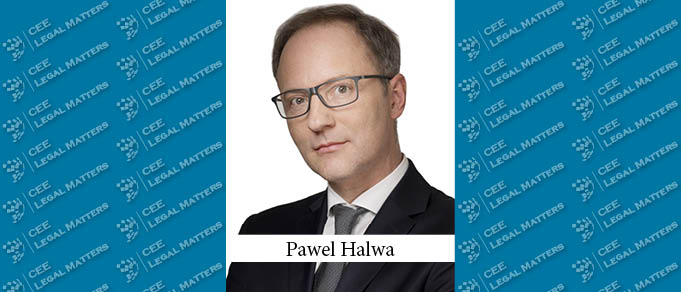Poland’s legal landscape is characterized by the increased mobility of lawyers and legal teams, while its markets are feeling optimistic following the results of the recent elections, according to Schoenherr Poland Managing Partner Pawel Halwa, and everyone is waiting for the new government’s investment and legislative priorities to come into focus.
Over the last three to six months, there has been a notable surge in legal team mobility in Poland, according to Halwa, “presenting significant opportunities for both domestic and international firms looking to expand their presence in the country. This movement has been particularly robust, leading to substantial growth for many firms, including ours and our peers like Rymarz Zdort Maruta and Wolf Theiss.” Noteworthy changes also occurred, he notes, within the former Dentons team, “with departures and the establishment of new firms. The energy sector has been a focal point during this period, along with robust activity in M&A, banking, finance, and healthcare. Long-established M&A teams have also witnessed notable shifts, indicating a dynamic and evolving legal landscape.”
Moving on, Halwa says the outcome of recent elections in Poland has already generated excitement in the market: “The Warsaw Stock Exchange responded enthusiastically, signaling positive expectations. The election results indicate access to new EU funds, particularly from the European Recovery and Resilience Facility funds. Infrastructure and innovation are poised to be primary beneficiaries, paving the way for increased investments and tech-driven M&A activities.” More broadly, he thinks “the legal market can anticipate heightened activity in infrastructure, energy, and healthcare, as these sectors are likely to gain prominence on the new government's agenda.”
“The government's focus on transitioning from coal-based energy to more sustainable alternatives is expected to generate changes in energy policy and drive legal work,” Halwa also highlights. “In context, while specific legislative proposals are not yet on the table, it is evident that renewable energy will be a priority – the legal sector is already witnessing growth in RFPs, with companies strategically aligning for the long term in response to expected or anticipated policy changes.”
When looking ahead to 2024, Halwa reports a “looming concern regarding a potential wall of debt, leading to anticipated restructurings and distressed transactions.” This trend is already visible in the real estate sector, he says, “and is expected to extend to other areas.” He points out that “specialized investors focused on special situations and distressed assets have been actively entering the Polish market over the past 12 months, positioning themselves for opportunities arising from debt refinancing difficulties.” As businesses seek to refinance their debt in 2024, “the markets foresee potential asset sales and restructuring opportunities,” Halwa concludes.






















